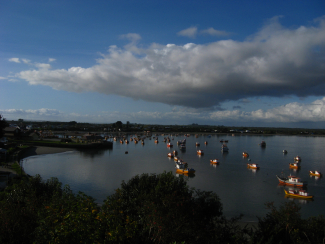What does it take to be heard in managing marine protected areas? Insights from Tanzania coastal communities
This paper explores the debate on participatory approach by presenting evidence from the local communities practices living within the marine protected area in Tanzania (Mnazi Bay Ruvuma-Estuary Marine Park). Five out of fifteen villages that exist in Mnazi Bay Marine Park were selected for this study after consultation with the park authority. Stratified sampling of villages was conducted based on the location from the Indian Ocean: three villages located close to the sea (sea front villages) and two villages located far from the sea (inland villages).
